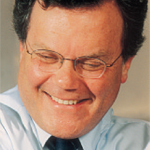Some use of brakes |
 |
| Kathy O'Meara considers how seriously we should be taking the talk of a downturn in the economy |
A new phrase has entered the vernacular and the Oxford dictionary. Credit crunch is a line bandied about with what we are led to believe has such relentless authority one should assume we understood the idea as much as its stablemate, sub prime lending.
So are we actually in the throes a recession? The Economic & Social Research Institute (ESRI) declared so at the end of June to the apparent surprise of finance minister Brian Lenihan, who argues the prospect of 0.5 per cent growth for 2008, despite the grim predictions of a yawning €4 billion black hole in the Irish economy.
The technical definition of a recession is two consecutive quarters' negative GDP growth. Can we, some argue, be so influenced by the prophets of gloom – particularly some well-known economists, that we literally talk ourselves into slowdown? Paul O'Brien of O'Brien & Co insolvency practitioners believes the numbers speak for themselves.
‘The slowdown was noticeable well over a year ago in the construction industry which is pretty much the frontline marker,” O'Brien told Marketing. “This then seeped down through the system into retail as house sales started to slow this had the inevitable knock-on effect into furnishings, white goods and smaller electrical purchases, – then onto discretionary/frivolous purchasing and now the motor trade is seeing the impact.”
O'Brien said the latter has been hit on many counts. The price of oil is climbing towards $200 a barrel, the VRT and road tax changes have resulted in confusion and fewer companies are funding executive car perks. The number of liquidations this year to date is up 71 per cent (212 in the first six months) and receiverships are up six fold.
Sir Martin Sorrell of WPP is on the record as saying that the complexity of the media market will protect its fortunes. He believes that in the wider media world both the Beijing Olympics and the US election will protect spends this year.
 |
REASONS TO BE CHEERFULSir Martin Sorrell has predicted that things will hold up this year due to the Olympic Games and the US presidential election but he is less confident about the next two years. |
But Sorrell contends that we can expect a marked downturn in international marketing and media next year and in 2010. It is true that the media market in Ireland is a strong business model in a weak market, not dependant upon the variables of any single sector.
Indeed, certain sectors, particularly digital, appear to have recession-proofed their business models competently, with diverse ‘bad weather' offerings in addition to the ratecard headliners and lower cost of entry as standard.
Sir Stuart Rose, executive chairman, M&S, whose UK sales slumped the most in three years and its food division reported the worst quarter in a decade, causing near carnage on the London Stock Exchange, said this latest phenomenon is just ‘a dab of the brakes', one in a series of readjustments necessary to ensure long-term stability.
Looking at comparative Adspend data from IAPI, it appears that while the first four months of 2008 did not match the heady growth levels of 2007 – up by just 5.7 per cent – the only medium to lose ground in real terms was cinema, down by 27.8 per cent. But this itself should readjust once Sex and the City spends are factored in this year.
Just five years ago, the same period registered a growth surge of 29 per cent. Internet spending is the real warhorse, now securing 1.2 per cent of media spend and seemingly unstoppable. Ciaran Cunningham at Carat Ireland predicted in January that media spend would slow over the year to 7.1 per cent, down from 11.4 per cent in 2007.
Leading sectors show mixed fortunes: low monetary value purchases such as fast food increased spend by 65.2 per cent led by McDonald's, up 101.6 per cent. Soft drinks also helped shore up the market, up by 27.2 per cent, heavily led by the energy drinks sector. Spend from auctioneers and mortgages fell significantly, down by 36.2 per cent and 27.2 per cent respectively. Pressures on revenues, sparked by the new alcohol and children's advertising codes, could hardly have come at a worse time for media owners here.
It is interesting to note that while the received wisdom is never to expand into a recession, there are a number of agencies kicking against the traces: Mediacom (relaunch); the AFA deal with McConnells and the expansion at Omnicom.
Omnicom's newly-established PHD spin-off anticipates initial annual media billings of €20m, representing clients as diverse as The Irish Times, 11850 and Kia Motors. Jason Nebenzahl, managing director of PHD, explains the rationale for the expansion.
Nebenzahl said that while everyone is eyeing the economic indicators and how they will impact on business, Omnicom has grown by over 30 per cent already this year, which is four to five times higher than the industry average. The driving force has been digital media. If results for clients can be generated, they will be confident spending, he added.









